Food inflation in June amounted to 12.2% with a general consumer price index 1.8%. That would be a joke, but that doesn’t make it funny at all.
It should be noted that, for example, flour fell by 43% compared to last year, packaging material prices decreased by about 20% compared to the maximum values, the price of a kilowatt-hour of electricity decreased by 70% for small and medium businesses compared to last summer, and fuel prices fell by 20% compared to last year, but food prices continue to rise. And the prices for seasonal fruits and vegetables in Greece beat all imaginable and unimaginable records. In a report by Stelios Morfidis published on the website protothema.grdetailing how companies cash in on consumers.
How is it that for basic goods, for example, dairy products, price growth rates compared to last year continue get close to 15% and industrial enterprises and wholesalers are already rushing to notify supermarkets of new price increaseswhich will occur gradually over the next two months. These prices make the Bank of Greece pessimistic about the slowdown in food inflation.
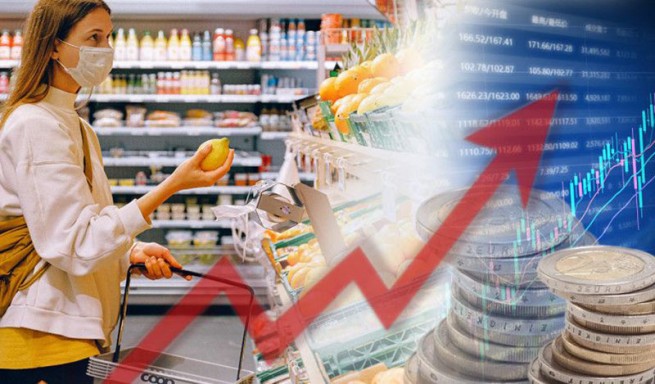
The rich get richer, the poor get poorer
Could it be that “greed” – a term now openly used by central banks and economists to refer to the practice of increasing business profits despite the pressure on consumers and the economy – is responsible for a situation that, although not a Greek monopoly, has moral implications in our country? Moreover, in recent difficult years, consumers and the Greek state have supported businesses in every possible way, helping them and providing tools during store closures or during an energy crisis. This is also evidenced by the fact that, unlike many European countries, there was no wave of mass lockouts here.
Facts usually tell the truth. And it lies in the fact that yes, 2022 was a difficult year for most enterprises, but many, despite the difficulties, made a solid profit.
This is evidenced by a simple reading of the balance sheets of some 150 listed companies. According to Beta Securities, their net income was €10.41 billion, up 303.6%than last year, and they made history by surpassing the listing’s “golden period” – the five-year period 2004-2008, when there were twice as many companies as there are now. And, according to the analysis of the Bank of Greece, this trend became evident already in the first nine months, when the share of net profit (defined as the ratio of net operating surplus to net value added) reached a historical high of 38.4% compared to 33.6% in the corresponding period of 2021!
According to ΟΟΣΑGreece is currently ranked seventh in terms of profit share increase from 34.4% to 39.2% in the period 2019-2022.
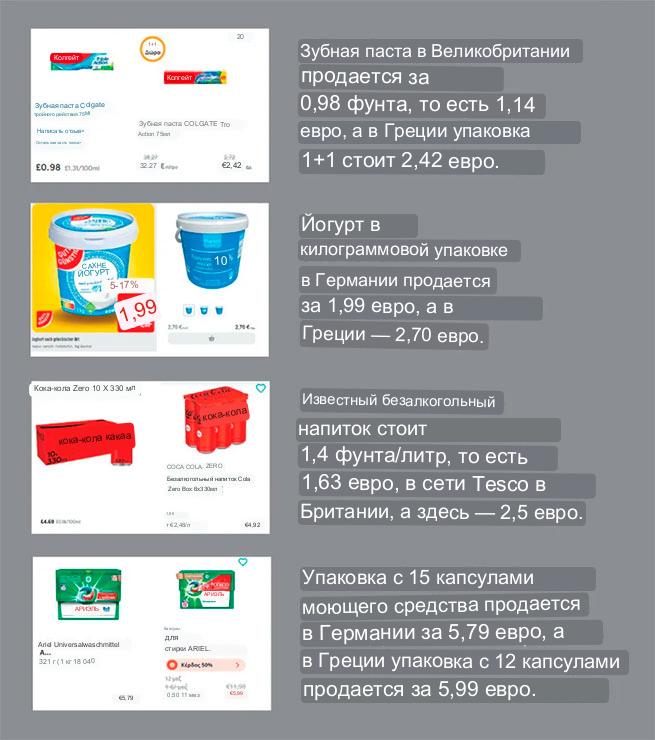
Special cases
However, one of the most typical and striking examples is flour industry, where last year, despite the turbulent environment, listed companies in this sector saw an increase in profits. Since the beginning of the war, since Ukraine is the third exporting country in the world soft wheat – raw materials for the production of flour, share prices skyrocketed, and supply contracts for May 2022 on the Euronext Paris exchange reached 397 euros per ton in May 2022 (this is for the very wheat that was promised to the starving Africa and Asia).
The Greek consumer paid for it, because the country’s flour mills did not fail to pass on to him the increased costs of both raw materials and energy. Today, September contracts for the supply of soft wheat in 2023 are trading at a price of about 230 euros per ton, while the prices at which delivery contracts were closed in May last year were 225 euros! In general, the price fell by 43% from the highs and was at the level of 2020.
However, prices at the next stages of the chain after processing are not going to fall! By contrast, flour is among the top gainers as it has risen in price by 41% compared to September 2021, when the rate-of-return measure was introduced, according to official figures. ELSTAT. Where there was a slight decrease, mainly due to offers, it was among professional clients of flour producers (bakers, confectioners, etc.), only the latter also prefer not to reduce the price, but to receive benefits. This is due to the fact that even in the case of bread, the consumer continues to buy it at the same increased price.
If we talk about wheat, then in the case of pasta, the situation is similar, but not so egregious. Last year, the price of Greek durum wheat, almost all of which is absorbed by the Greek pasta industry, was as high as 0.46 euros per kilogram, which caused a wave of price increases, which, of course, reached the shelf and the consumer. This year, the price has been agreed to the level of 0.25 euros, which means that from autumn, industrialists will have to significantly reduce the final price (given the situation with gap “Grain Deal” it won’t happen anymore. Note. editions).
One case that also attracts attention is milk. Despite the fact that producer prices for milk – mainly cow’s and to a lesser extent sheep and goat’s – now fluctuate around 45/48 cents per kilo (in November last year they were about 60 cents), dairy companies continue to maintain high prices for dairy products, especially for cheese, which in two years, according to ELSTAT, also increased by 41%.
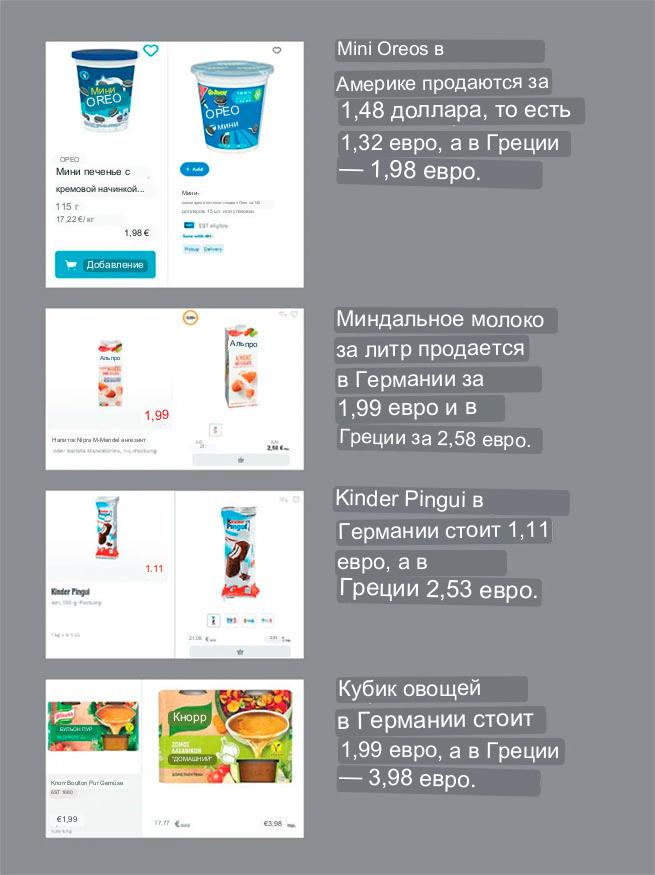
Profit
A great truth was recently spoken by renowned businessman Spyros Theodoropoulos, who spoke of a number of long-term factors that have surfaced due to the war in Ukraine and the turmoil in the supply chain, “which will continue to drive up food prices” (climate change, the rise of China and India, shortage workers), acknowledged that achieving profitability targets remains a dominant factor for the food industry. “Let’s be honest. No business can do that. Especially listed companies and multinationals can’t cut their profits. They have the breath of the financial markets on their backs,” Theodoropoulos said.
Responsibility
The truth is that an easy target for the price hikes we see on the shelves are the supermarkets themselves. However, it was they who found themselves in a more suffocating position after the introduction of the margin cap, as well as after the introduction of “Housewife’s Baskets”. While it is possible that individual cases of derailment were quickly identified at the start of each of these measures, the initial fines and public reporting made it possible to avoid a repetition of such excesses.
This, by the way, main argument of supermarket operators, which, however, have been insisting for at least half a year on the abolition or change of the ceiling for a more complex calculation. Supermarket chains currently operate with gross margins ranging from 23% to 27%. But in the end, net profit is limited to 0.5-1% of turnover due to high costs, among which the main ones are energy costs (refrigeration equipment, cold rooms, etc.), and the second is wages.
It should be noted that the continued rise in food prices leads to a suffocation of Greek households, which spend more than 20% of their income on food, and for the 20% of the poorest segments of the population, the situation is even more difficult, since the share of their income attributable to the purchase of goods essentials, reaches 30%.
Thus, industrial enterprises, transnational corporations and wholesalers receive the greatest profit. This is perhaps more evident from the fact that in other European markets the same products sell for less. Regardless of whether they are produced in our country or are products of transnational corporations.
A small study of online stores of well-known and large networks in our country, Germany and the UK shows the difference. For example, in the British chain Tesco, a well-known soft drink costs 1.4 pounds per liter, while in our country it costs 2.5 euros. The same applies to a certain brand of toothpaste that costs £1 versus €2.42 in the same supermarket in the UK for a 1+1 product. Similarly, 10 capsules of a branded espresso machine cost €3.10 in Greece and €2.49 in Germany. Even private label Greek feta cheese costs £1.69/200 grams in the UK, compared to €2.59 in Greece. In detergents, the differences are even more obvious.
In an attempt to protect themselves, Greek consumers have switched to private label (PL) products, which, while much more expensive than the branded ones, are still at a lower level.

Measures to limit profits
The Government, for its part, states that maintaining the measure to limit the rate of return will be the basis for strengthening control over the market. “I want to assure all citizens that everything will be under control. Control will be carried out at all levels and in all types of stores in order to avoid obscenity. There will be no tolerance for offenses and attempts to exploit consumers,” Development Minister Kostas Skrekas said in an interview with THEMA .
Control will now start at the manufacturer and extend to the entire supply chain as well as HORECA, he said, as most of the resources were directed to organized retail control last year.
Indeed, according to available information, inspections have already been prioritized: they will begin with stores to prevent the phenomenon of fictitious discounts, and will be extended to manufacturers and dealers of cleaning products, dairy products, stationery and personal care products. Indeed, according to available information, significant violations have been recorded, for which specific enterprises are currently being monitored.
It is also the intention of the leadership of the Ministry of Development to require multinational companies to justify why they sell more expensive products on the Greek market than on other European markets. For its part, it is expected that new investigations will be launched by the competition commission, which is in the final stages of investigating distortions in the detergent market.
In a statement to THEMA, its chairman, Ioannis Lianos, also emphasizes that there is currently a law in place that prohibits disclosure of future price increases through statements by company executives. This practice, he said, in many cases is used either to create an atmosphere for unjustified price increases or to “inform” competitors what will follow, and therefore acquires the character of indirect collusion.
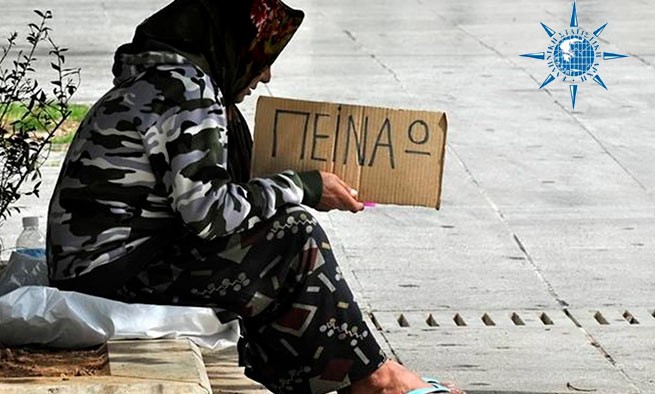
O Απόστολος Ραυτόπουλος, πρόεδρος της Ένωσης Εργαζόμενων Καταναλωτών Ελλάδας της ΓΣΕΕ απομυθοποιεί το κυβερνητικό αφήγημα για το market pass:
«Πήραμε 60 προϊόντα στην αρχή που δημιουργήθηκε το "καλάθι του νοικοκυριού" και αυτά τα προϊόντα κόστιζαν τότε 250 ευρώ συνολικά.Πήραμε… pic.twitter.com/Z5fDAnLIlF
— Areti Athanasiou (@AretiAthanasiu) July 12, 2023
Apostolos Raptopoulos, President of the Union of Hellenic Consumer Workers GSEErefutes the government’s version of market pass:”At the very beginning, when it was createdHousewife’s basket“, we took 60 products, which then cost a total of 250 euros. Now we have taken the same products from the same network. They cost us more than 430 euros. Since the creation of the “Basket” and until today the average rise in price of these products was 72%. So there is no need to tell us about 10% of the market pass, when it is proved that the market pass is only 10% and must be at least 43 euros, at least (per person). In fact, this is 5% of the market pass, which will be given for three months. So what is this, if not bullying?“.





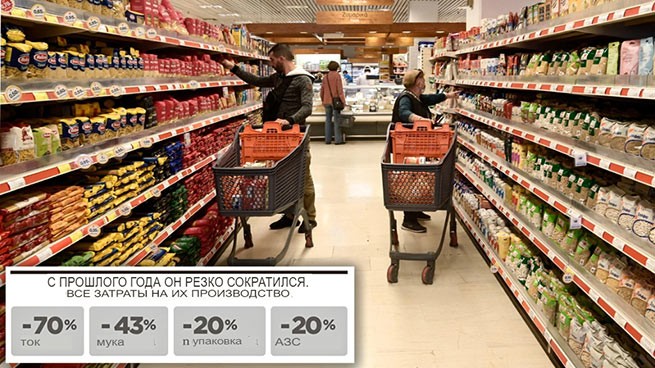

More Stories
What's Happening to America's Presidential Candidates (Video)
Who is he, the killer Farion?
What's happening on Athos? Will there be an assault on Esphigmenou?